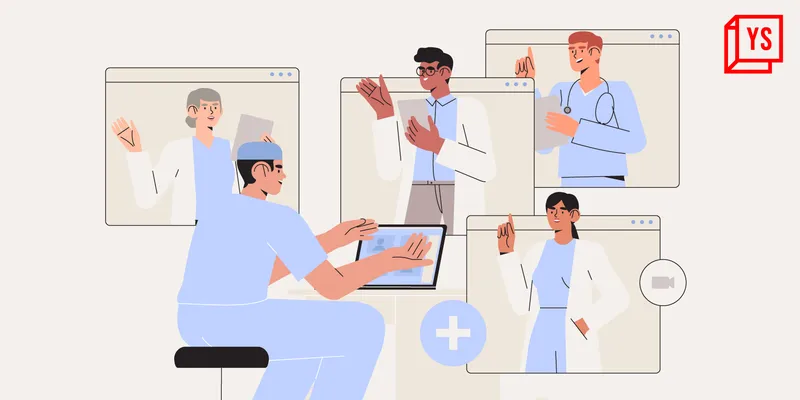Experts call for systemic reform of competitive exams
In the wake of allegations of irregularities in medical entrance exams, experts advocate decentralisation of exams, private participation in medical education, and thorough reforms to ensure transparency and fairness.
A few months ago, Dr Madhur Kumar Verma, a newly-qualified MBBS graduate from Agra, found himself at the crossroads. He had two choices: to start preparing for the post-graduation National Eligibility cum Entrance Test (NEET-PG) or look for a job at a hospital.
As his grandfather was ailing, Dr Verma decided to stay at home to study for NEET-PG and also care for his grandfather. However, he did not foresee the turn of events a few months later.
On June 22, about 10 hours before the exam was scheduled to be held on June 23, the NEET-PG exam was postponed as a “precautionary measure”, leaving Dr Verma and over two lakh aspirants uncertain about their future.
“Many graduate students like me are dealing with unemployment, societal pressures, personal losses, financial crisis, long hospital duties, all at once ... We also have families to look after,” Dr Verma tells SocialStory.
NEET-PG–conducted by the National Board of Examination–is an academic test to determine the eligibility of candidates for admission into postgraduate medical courses across all colleges in the country. The test, which was initially scheduled for March 3 this year, was postponed to July 7. Later, it was advanced to June 23, before it was postponed again. A new date for the exam is awaited.
The postponement of NEET-PG came amidst allegations of irregularities, including ‘paper leaks’, in NEET-UG (the undergraduate entrance exam), conducted by the National Testing Agency (NTA), an autonomous body under the Ministry of Education.
Need for systemic change
The organisation and structure of competitive exams in India has come under scrutiny in recent years, prompting the need for a thorough reform to ensure transparency and fairness.
The underlying issues are systemic and larger than instances of cheating and corruption, opine stakeholders in the field of medicine and education.
“The NEET incident highlights several critical issues in the way competitive exams are conducted in India,” says Dr Sanjay Sharma, Co-founder of Footsecure, a Bengaluru-based phygital podiatry platform.
“The integrity of these exams is essential for maintaining trust in the educational system, and the current issues suggest a need for substantial reforms to ensure fairness and reliability,” he adds.
Working in silos has affected the efficiency of processes across the ecosystem–from admissions and distribution of examination papers to time allotment and overall monitoring, point out industry observers.
“Therefore, the entire system requires a thorough overhaul to identify all the cracks and mitigate any further leakage,” says Praneet Muglani, an education consultant and Trustee and Secretary, Sanskriti Group of Schools, Pune.
Routine audits and evaluation of the examination process by impartial bodies will help find and fix vulnerabilities, says Dr Ajit Kumar, Director, Sharda University, Noida. He suggests putting in place a quick response team to handle any leaks or abnormalities in a timely and open manner.
“Involve instructors, professionals, and students to get inputs and make ongoing improvements to the testing procedure.”
Introduction of multiple question papers can also stem the problem of paper leaks to a considerable extent, believes Sourya Banerjee, a lawyer and Associate Director of Public Policy, Jajabor Brand Consultancy.
“While this increases the administrative cost, there can be 4-5 variations of the paper, and which paper is to be used can be randomly decided on the date of the exam.
“Even if all five variations of the papers are leaked, it would take one candidate so much effort to be prepared for all five variations, that they may legitimately end up learning in an attempt to cheat,” he explains.
Increased private participation in medical education could be the way forward in the long term to address the issue of availability of medical seats.
Dr Prashant Narang, education policy researcher and a post-doctoral fellow at The Knee Regulatory Research Centre, based in the US, says, encouraging more private participation in medical education, with appropriate checks and balances, could rapidly expand the number of seats available.
“This expansion would address the quantity issue that forces thousands of Indian students to seek medical education abroad. It could potentially transform India from a country that exports medical students to one that attracts them from around the world,” he remarks.

Increased private participation in medical education could be the way forward in the long term to address the issue of availability of medical seats, opine experts.
Technology solutions
Stringent tech solutions must be put in place to prevent data breaches and malpractices and make the testing machinery robust and foolproof. Solutions could range from secure distribution methods and advanced firewalls to cutting-edge encryption techniques.
Nedunchezhian Dhamotharan, a social entrepreneur and Founder of Technocrats India College Finder, a Chennai-based career guidance firm, asserts that the main goal of authorities must be to maintain transparency and quality.
“In an IIT-JEE advanced exam, use of technology has ensured that students cannot know what to expect until the day of the exam when the process requires them to digitally press a button before seeing the paper and starting the exam. We have to keep finding innovative ways to streamline the system and make it resilient to violations,” he says.
It is time to ask why NEET-UG continues to be conducted in pen-and-paper mode, when exams like JEE are conducted online, says Jayaprakash Gandhi, a career guidance expert from Salem, Tamil Nadu.
A decentralised system
Experts also advocate a decentralised system that gives states the autonomy to conduct the exams.
“This will limit the number of people with access to papers and reduce the possibility of leaks,” says Banerjee.
“In centrally planned exams, a lot of people are involved in ensuring the papers are printed and distributed. If we hypothetically consider each person to be a potential leak, the greater the number of people with access to the paper, the higher the possibility of the leak. State exams can drastically cut down this number,” he elaborates.
Need for better planning and execution

Better planning and execution will help avoid last-minute hiccups in the conduct of exams.
Regularisation of exam schedules by fixing them well in advance and developing clear policies on re-examinations will ensure smooth execution and help avoid last-minute hiccups.
India can incorporate best practices from exams like GMAT and CAT and draw inspiration from the system in the United States, which conducts the standardised SAT and ACT exams for college admissions throughout the year and allows multiple attempts.
Education consultant Muglani says competitive exams in India could be conducted at least twice a year to reduce the burden on both the system and the students.
Quoting Dr V Ramgopal Rao, Vice-Chancellor of BITS Pilani group of institutions and former director of IIT Delhi, Mughlani suggests granting constitutional status to the NTA for transparency and allowing leading academics to manage the examination processes. He also recommends involving top institutions to ensure smooth conduct of the exam with adequate infrastructure and security.
Medical students too seek better planning and execution in the conduct of entrance tests.
“These delays or irregularities might not seem serious at the moment but, in the coming years, they will have a direct impact on the healthcare machinery of the country,” says Dr Sidra Fatima, an MBBS graduate from Lucknow, urging better management of the process of conducting entrance exams.
Though India has managed to close the doctor-patient gap in recent years, there is no doubt that the country needs more doctors. This need can only be met if medical professionals enter the healthcare system regularly and without inordinate delay.
Feature image by Nihar Apte
Edited by Swetha Kannan








